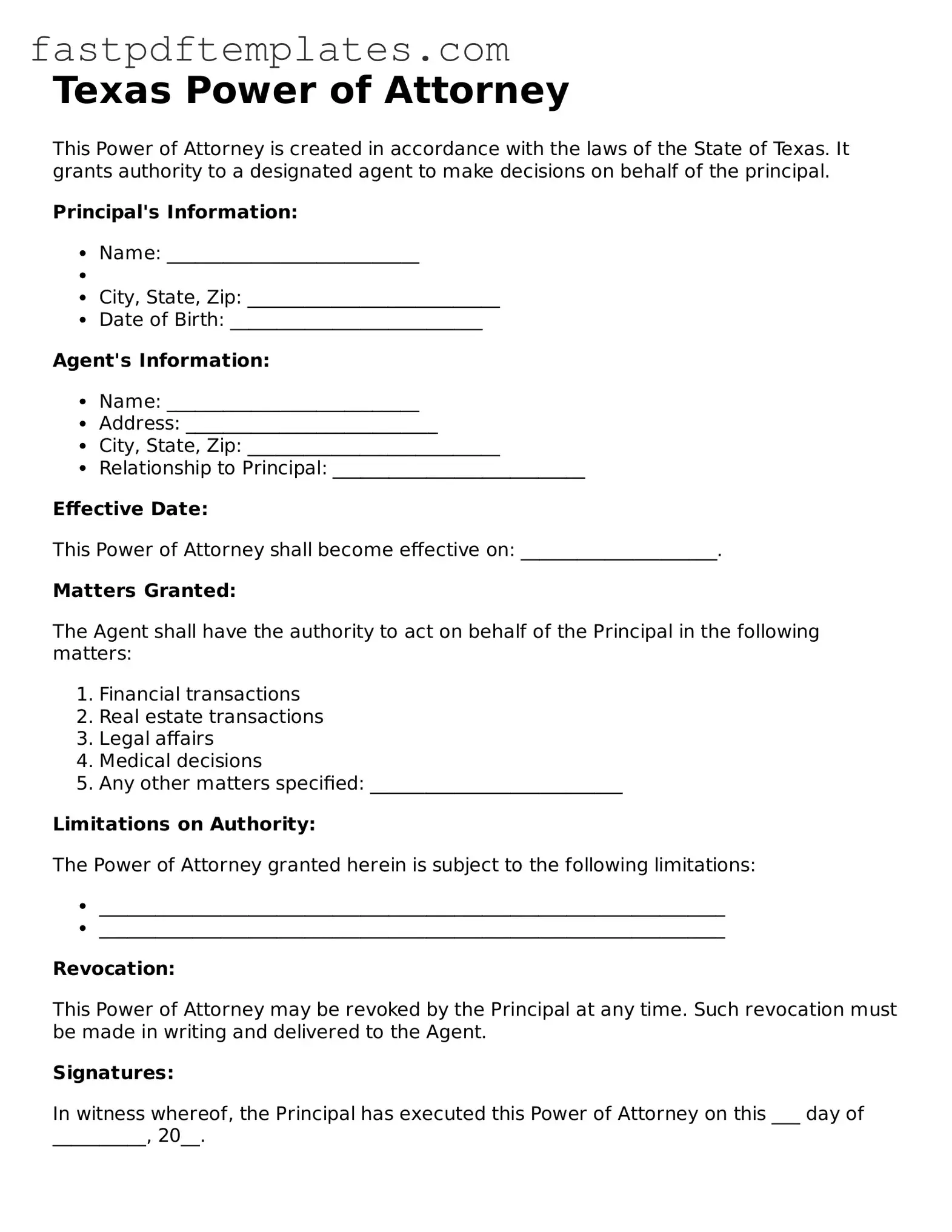Attorney-Approved Texas Power of Attorney Document
The Texas Power of Attorney form is a legal document that allows an individual, known as the principal, to designate another person, referred to as the agent, to make decisions on their behalf. This form can cover a wide range of financial, legal, and medical matters, granting the agent the authority to act in the principal's best interest. Understanding the nuances of this document is essential for anyone considering its use in Texas.
Access Document

Attorney-Approved Texas Power of Attorney Document
Access Document
Your form still needs completion
Complete your Power of Attorney online and download the final PDF.
Access Document
or
Click for PDF Form
